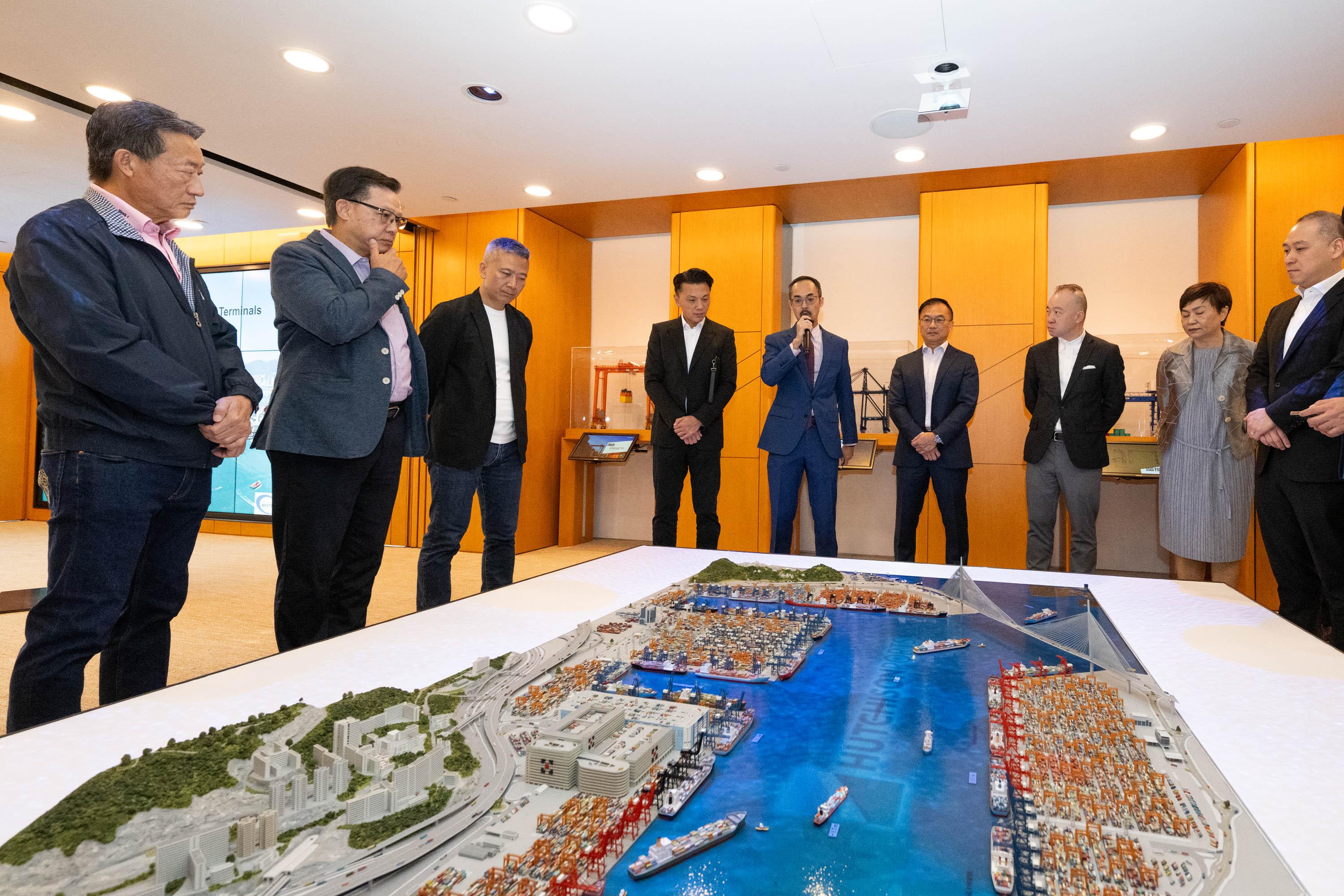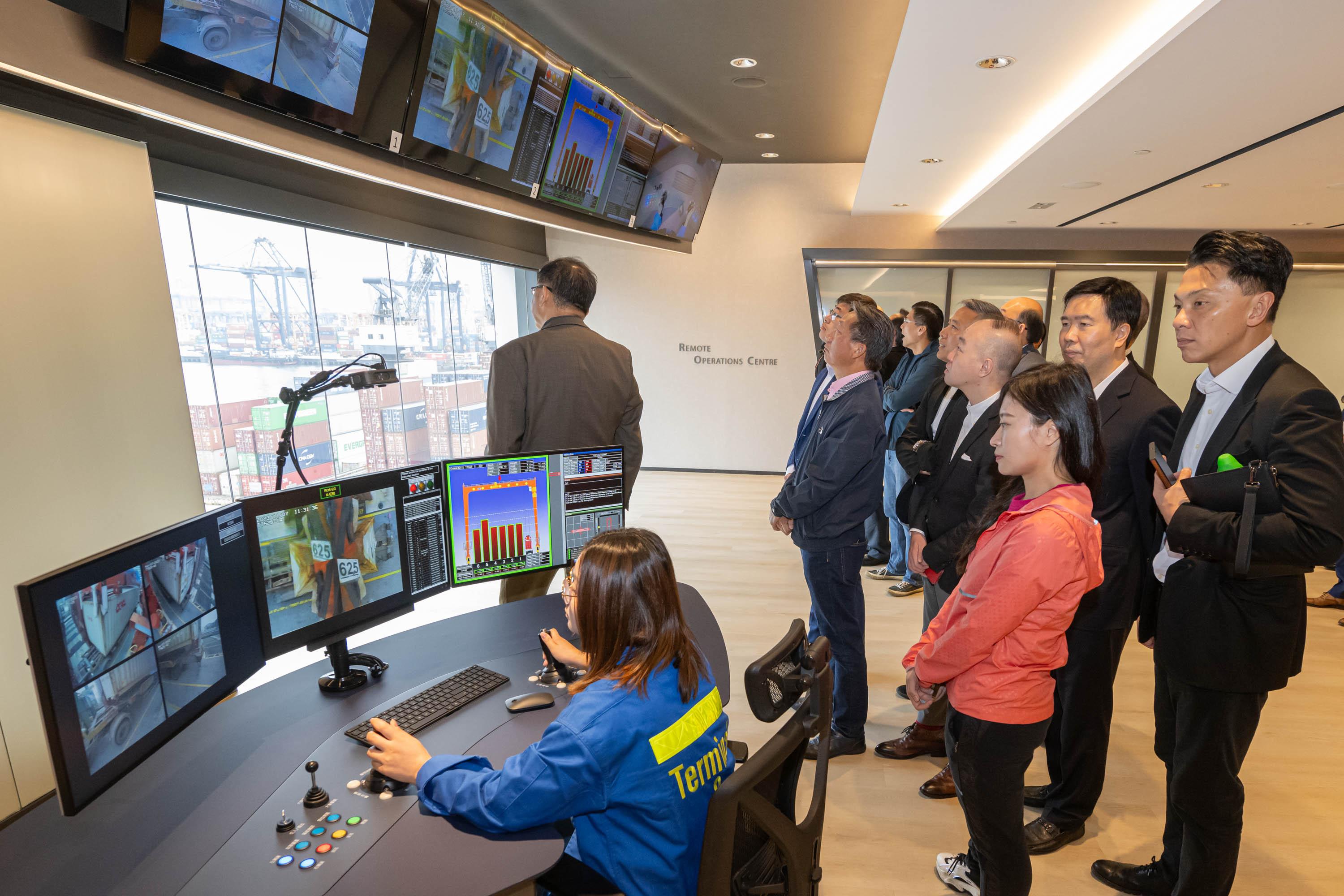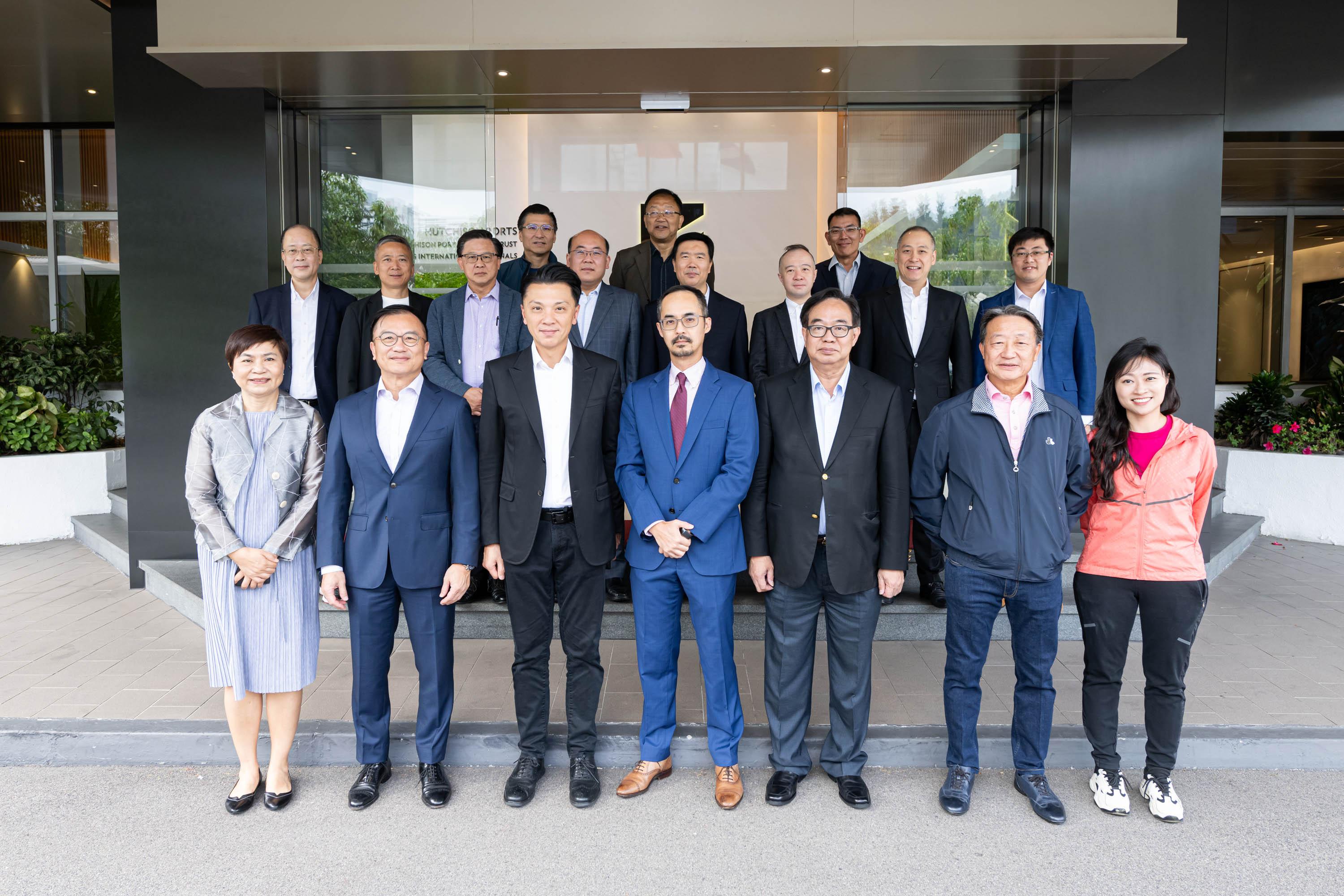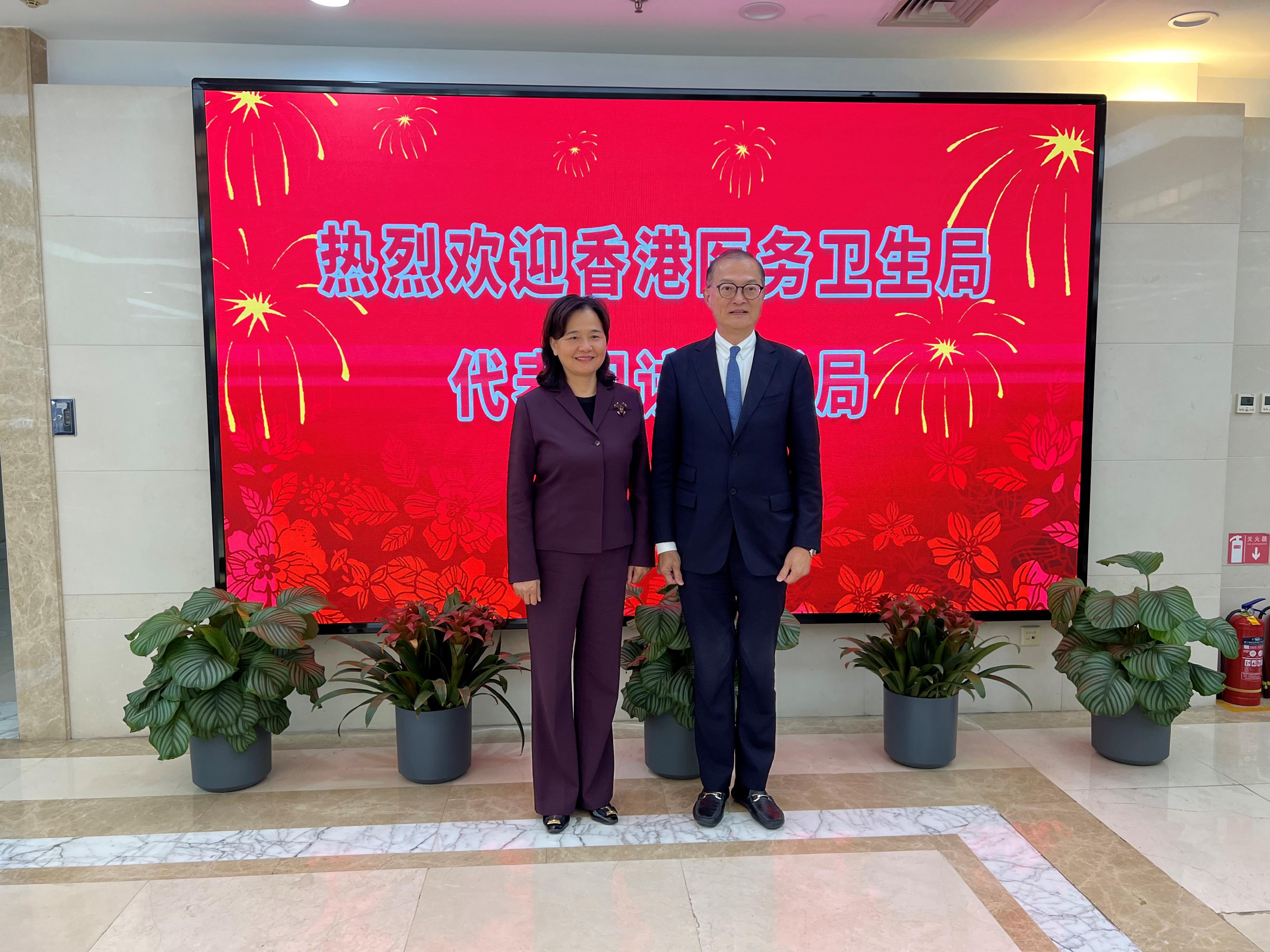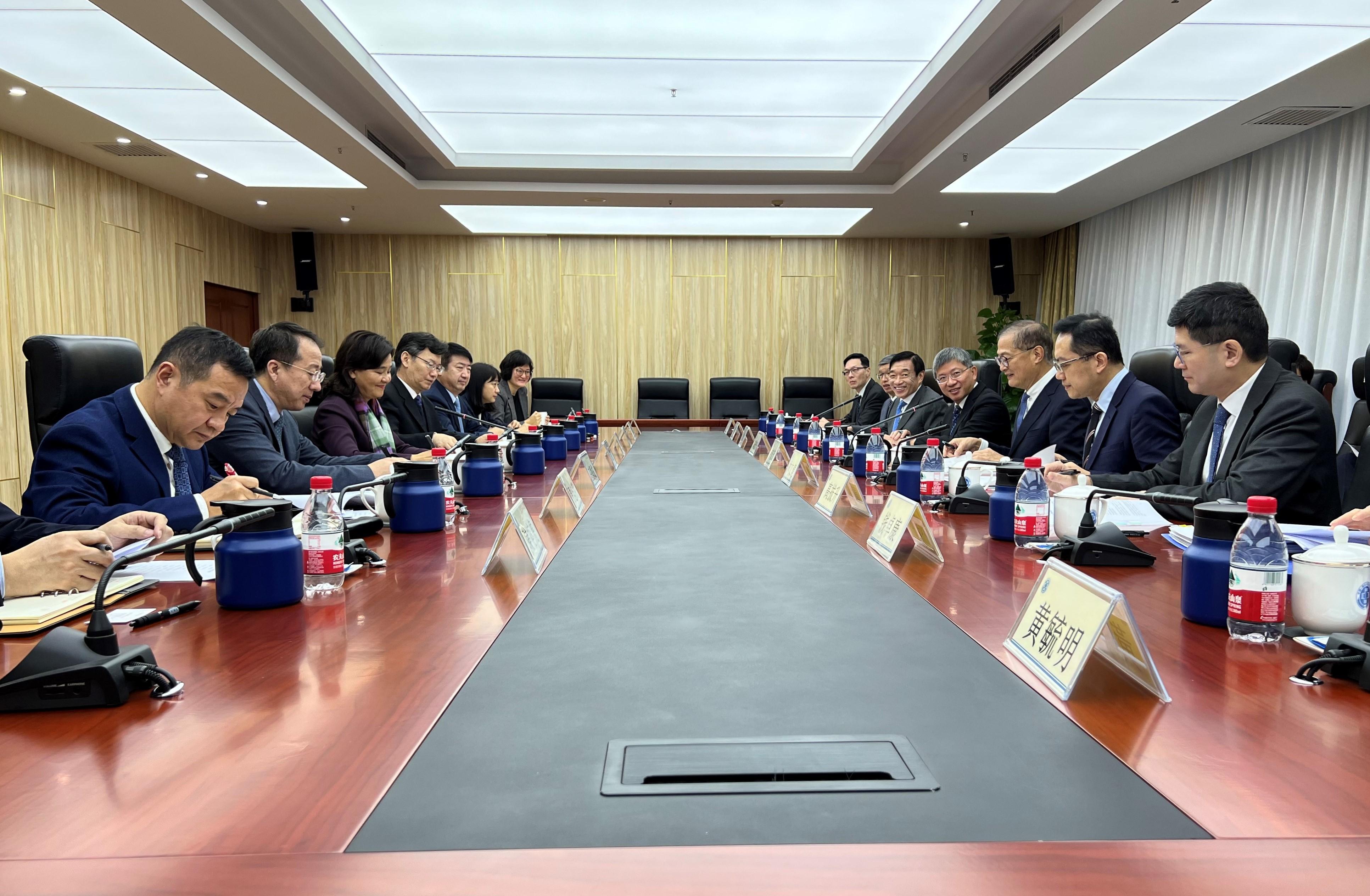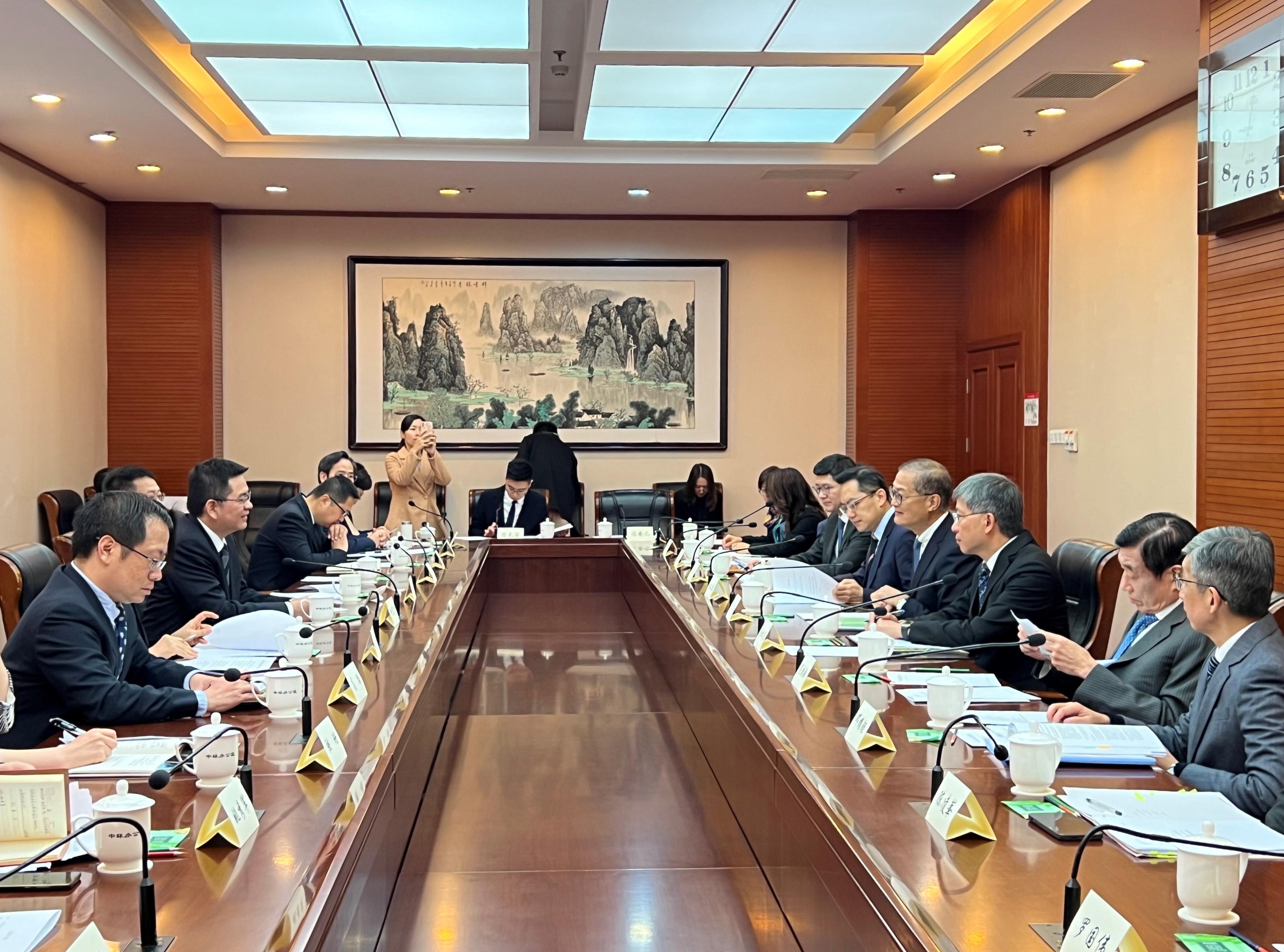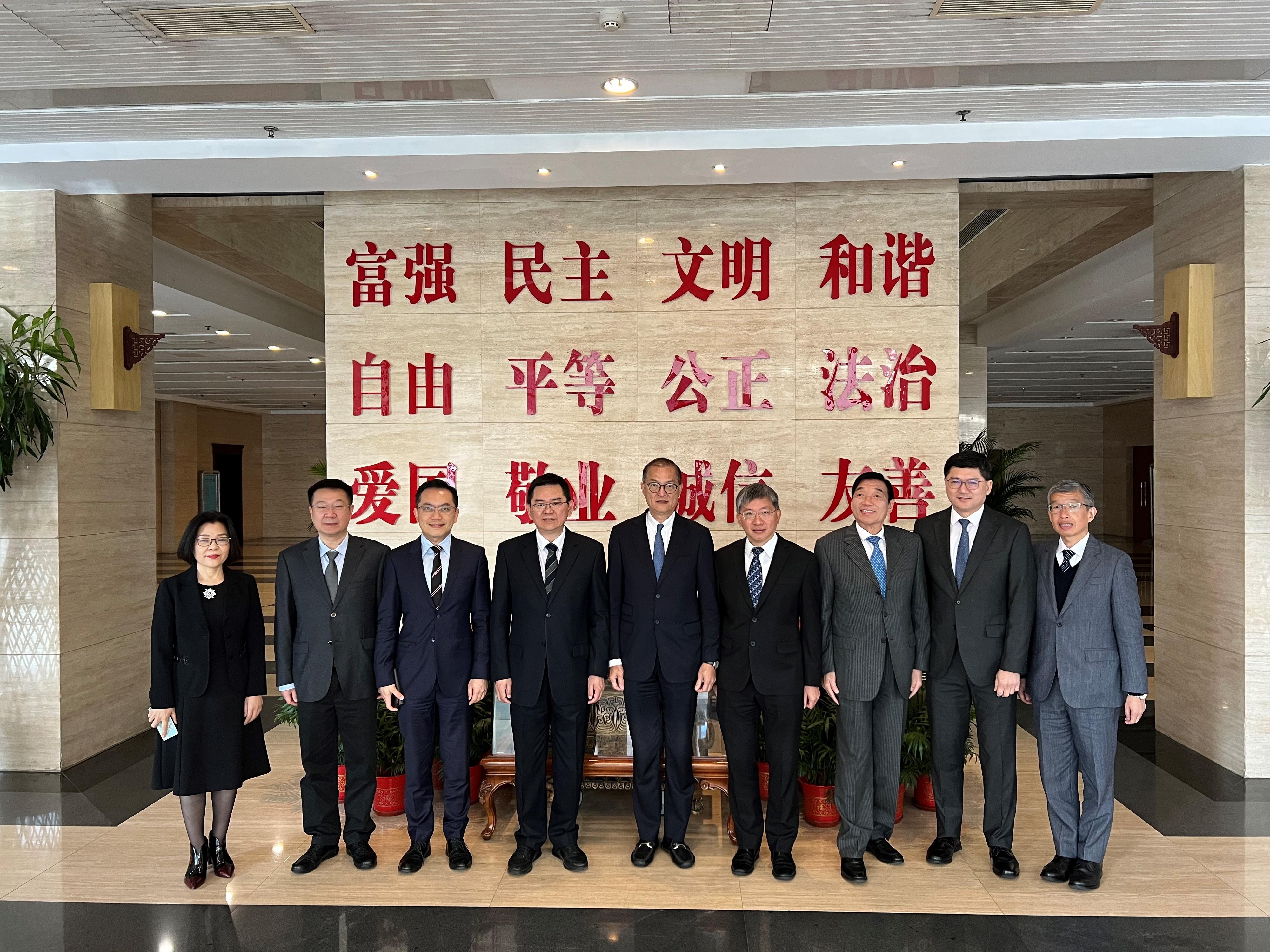Following are the closing remarks by the Secretary for Justice, Mr Paul Lam, SC, at the Legal Forum on Interconnectivity and Development under Hong Kong Legal Week 2023 today (November 7):
Your excellencies, distinguished guests, ladies and gentleman,
Good afternoon again. As Professor Zhao (Representative of the Regional Office for Asia and the Pacific of the Hague Conference on Private International Law (HCCH) and Associate Dean of the Faculty of Law of the University of Hong Kong, Professor Zhao Yun) said, it is always very challenging to be the last speaker. I think I am literally the last speaker for this session. I wish to say that obviously today’s Legal Forum on Interconnectivity and Development is coming to an end and I wish to take this opportunity to share with you some of my views and thoughts to close this Forum.
This year holds special significance as we celebrate the 10th anniversary of the Belt and Road Initiative (BRI), which is a visionary project proposed by President Xi a decade ago. Just last month, the third Belt and Road Forum for International Cooperation was held in Beijing. During his keynote speech, President Xi noted that “Changes of the world, of our times, and of historical significance are unfolding like never before” and he announced eight major steps China will take to support the joint pursuit of high-quality Belt and Road co-operation. By deepening Belt and Road international co-operation, we will build an open, inclusive and interconnected world for common development and a community with a shared future for mankind.
Today’s Legal Forum is not only important but also opportune. It provides valuable opportunities to discuss and exchange views on two key aspects of legal affairs related to high-quality development of the BRI. Firstly, we discussed legal responses to dynamic changes and challenges in international relations, including the legal tools that may be utilised to tackle these challenges. Secondly, we discussed the legal safeguards necessary to ensure high-quality development under the BRI and the contributions that can be made by the HKSAR (Hong Kong Special Administrative Region) in deepening Belt and Road international co-operation to bring this initiative to a new stage of higher-quality and higher-level development.
Legal response to challenges in international relations
The global landscape has undergone profound transformations accompanied by an array of complex challenges. The rise of geopolitical tensions has led certain states to employ “long-arm jurisdiction” and impose unilateral sanctions against established principles, rules and practices of international law. Moreover, the surge in unilateralism and protectionism practised by certain states has eroded the foundations of the multilateral trading system established by the WTO (World Trade Organization). These challenges pose a significant threat to the very fabric of our global legal order.
In these times of unprecedented and rapidly evolving challenges in international relations, China enacted the Law on Foreign Relations earlier this year. It is the first piece of basic legislation that fully outlines China’s major policies, principles and positions, systems and structures concerning China’s foreign affairs and provides the overall rules and regulations on China’s foreign relations. It seeks to effectively respond to external risks and challenges, while safeguarding China’s sovereignty, security, and development interests through legal means. Additionally, it seeks to promote friendly exchanges and strengthen global engagements.
As we have heard from our distinguished keynote speaker, Dr Huang (United Nations (UN) International Law Commission Member, Dr Huang Huikang), this afternoon, the enactment of the Law on Foreign Relations indeed marks a significant milestone in the development of China’s foreign related legal system. It serves as a testament to China’s unwavering commitment to upholding the UN-centred international system and rule of law on a global scale.
Hong Kong, as an integral part of China, shares this resolute commitment to upholding the rule of law on a global scale and safeguarding the development interests through legal means. Our commitment in upholding the rule of law and using legal tools to tackle external challenges are vividly demonstrated by our origin marking case under the WTO as explained by my learned colleague Dr Ding (Law Officer (International Law) of the Department of Justice (DoJ), Dr James Ding).
HKSAR’s participation in China’s foreign-related legal affairs
Indeed, as the centre for international legal and dispute resolution services in the Asia-Pacific region, we are committed to actively participate in and contribute to advancing the rule of law in both domestic and foreign affairs in furtherance of the BRI.
(a) Contribution to the development of high-quality Belt and Road co-operation
First, under the principle of “one country, two systems”, Hong Kong plays a unique role in the high-quality development of Belt and Road co-operation. Being the only common law jurisdiction in China, our judicial system is open, independent, and enjoys a renowned international reputation. Our court judgments have garnered recognition in other common law jurisdictions, underscoring our legal influence. Furthermore, our statutes are available in both English and Chinese, and our civil and commercial laws align with international standards and practices. These attributes facilitate efficient resolution of cross-border disputes, instilling confidence among businesses and investors engaged in Belt and Road projects.
Moreover, our legal professionals possess a wealth of knowledge and experience in handling complex international transactions and legal matters. They are well versed in navigating the intricacies of international law and possess a deep understanding of both Western and Chinese legal systems. This expertise allows them to provide comprehensive and tailored legal service to parties involved in the development of the Belt and Road projects, ensuring compliance with international legal standards and practices.
Leveraging these inherent advantages, Hong Kong serves as a “super connector” between the Mainland and rest of the world, providing an ideal business environment governed by the rule of law. It acts as a hub for facilitating seamless connections and fostering an atmosphere conducive to international trade and investment.
(b) Contribution to international dispute resolution
In addition, Hong Kong plays a constructive role in supporting international dispute resolution. With the staunch support from the Central People’s Government, the International Organization for Mediation (IOMed) Preparatory Office was established in Hong Kong in February this year.
The IOMed will be the world’s first intergovernmental legal organisation dedicated to providing mediation services for settling international disputes. It seeks to promote the principle of settling international disputes by peaceful means enshrined in the UN Charter. It will be a useful supplement to existing dispute resolution institutions, contributing to harmonious and peaceful international relations and advancing the development of the global governance system.
The establishment of the Preparatory Office in Hong Kong signifies a vote of confidence from the Central People’s Government and the countries signing the Joint Statement on the Future Establishment of the International Organization for Mediation, placing their trust in Hong Kong as a leading centre for international legal and dispute resolution services. The HKSAR Government will use its best efforts to support the work of the Preparatory Office and the eventual establishment of the IOMed.
(c) Capacity building in foreign-related legal affairs
Furthermore, Hong Kong is committed to enhancing its status as a regional centre for capacity building.
With a wealth of legal and dispute resolution professionals with international exposures, the DoJ of the HKSAR has been actively organising and supporting training and capacity programme relating to different areas of law and practice. For example, the DoJ recently co-organised the 6th Training Session of the China-Asian African Legal Consultative Organisation (AALCO) Exchange Programme on International Law in August. Furthermore, the DoJ is set to co-organise the 4th round of Investment Law and Investor-State Mediator Training later this year and early next year. In December this year, the DoJ will co-organise the First Edition of The Hague Academy of International Law’s Advanced Course in Hong Kong on international commercial and investment dispute settlement.
The DoJ also plays a significant role in organising international events that bring together government officials, professionals, and experts from around the world to Hong Kong. These events serve as platforms for facilitating discussions on the latest developments in various legal domains. Notable examples include the HCCH Asia Pacific Week held in September this year, the biennial UNCITRAL Judicial Summit concluded this afternoon, and the upcoming biennial Asia Pacific Private International Law Summit scheduled for next year. The DoJ will also support the organisation of the 3rd AALCO Annual Arbitration Forum in Hong Kong in December this year.
In addition, the DoJ has established programmes for legal professionals in both public and private sectors to be seconded to renowned international organisations, such as the United Nations Commission on International Trade Law (UNCITRAL), the Hague Conference on Private International Law (HCCH), the International Institute for the Unification of Private Law (UNIDROIT) and the Asian Infrastructure Investment Bank (AIIB). These programmes will strengthen our relationships with these international organisations, providing invaluable experience to our legal talents in the practice of international law and empower them to make further contributions to the development of foreign-related legal affairs.
To take our capacity-building initiatives to the next level, as announced by the Chief Executive in the Policy Address last month, we will establish the Hong Kong International Legal Talents Training Academy to leverage our bilingual common law system and international setting. A dedicated office and an expert group will be set up by the DoJ within next year to take forward the establishment of the Academy. The Academy will regularly organise practical training courses, seminars, and international exchange programmes to promote exchanges among talents in regions along the Belt and Road. It will also provide training for talents in the practice of foreign-related legal affairs for the country, and nurture legal talents conversant with international law, common law, civil law and the country’s legal system.
Conclusion
Ladies and gentlemen, as President Xi said in the third Belt and Road Forum for International Cooperation, the BRI “has opened up a new path for exchanges among countries, and established a new framework for international co-operation. Indeed, the BRI represents humanity’s joint pursuit of development for all.”
The DoJ remains committed to developing Hong Kong as a centre for international legal and dispute resolution services in the Asia-Pacific region in order to support the BRI and to contribute to higher-quality and higher-level development of Belt and Road co-operation.
I hope that today’s Legal Forum has provided you with valuable insights and knowledge. Let us foster continued collaboration and dialogue, and work together to forge a better future for our interconnected world. Thank you very much. read more


